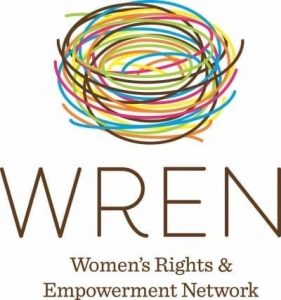New report supports increasing women’s workforce participation as solution to South Carolina’s labor shortage
December 20, 2021To recruit more women into the workforce, employers must improve the workplace
The COVID-19 pandemic stretched the national economy to a breaking point causing unemployment to spike, especially among women. Here in South Carolina and around the country, we have experienced a “she-cession,” which means the economy’s downturn has disproportionately affected women. This trend has reverberations for the overall recovery of our economy. A new report by WREN provides the first analysis of the she-cession in South Carolina. The report, prepared by research economist Joseph Von Nessen, PhD, shows that our current labor shortages cannot be solved without getting women back to work.
Women have experienced disproportionate employment loss during the COVID-19 pandemic. In South Carolina, the number of unemployment claims from women increased to a rate unseen before the pandemic. WREN’s report suggests that women are an untapped labor force that can provide a solution to South Carolina’s labor shortage—if employers are willing to make changes to the workplace that would encourage their participation.
“This labor shortage provides a unique opportunity to help employers find new and more effective ways to recruit workers – and women in particular – that they may not have previously considered. This could include, for example, higher wages or more flexible schedules,” Dr. Von Nessen said. “Employers across most industries are hiring right now and are looking for solutions to their labor challenges.”
This moment provides an opportunity for workers and employers to work together to create a more equitable workplace.
“This is the best job market South Carolina has seen in a generation. That means workers have more bargaining power than they’ve ever had – at least in recent history,” Dr. Von Nessen said.
The Women’s Rights and Empowerment Network (WREN) is the leading gender justice organization in South Carolina with a 40,000 member network. Given recent findings from this report, WREN will convene employers and policymakers with the goal to provide solutions across industries.
“We have an opportunity to develop an action agenda in a way that will propel our economy forward and also address the needs of the most marginalized people. In South Carolina, those people happen to be women and gender-expansive people,” WREN CEO Ann Warner said. “We need a multi-pronged approach that involves policy makers, employers, and civic groups. There are specific and actionable steps employers can take now to improve working conditions and encourage more women to re-enter and remain in the workforce.”
Some have opted out of the workforce entirely due to systemic barriers that prevent them from fully participating in the labor market. These barriers can include increased caregiving responsibilities, virtual school, or the cost of daycare. The barriers that preclude women and gender-expansive people from full employment hold back the economy.
A recent poll of likely voters from the National Women’s Law Center found that half of South Carolina voters say their income is falling behind the cost of living. Wages, among other workplace improvements like access to childcare, flexible scheduling, and healthcare benefits, could incentivize women’s workforce participation.
“We have an opportunity here to create a more equitable and just economy. This is an opportunity to really think about how to make South Carolina work for women,” Warner said. “If South Carolina does not work for women, it doesn’t work for anyone. Employers have a once in a generation opportunity to make sure working conditions improve for women–a ready and willing workforce. We can’t miss this chance.”
Dr. Von Nessen is available for comment, email [email protected]. Watch an overview of the report here.
About WREN
The Women’s Rights and Empowerment Network (WREN) is a South Carolina based nonpartisan nonprofit. WREN uses a gender justice framework to build a movement that advances the health, economic well-being, and rights of women, girls, gender expansive people and their families. Learn more at scwren.org.





















